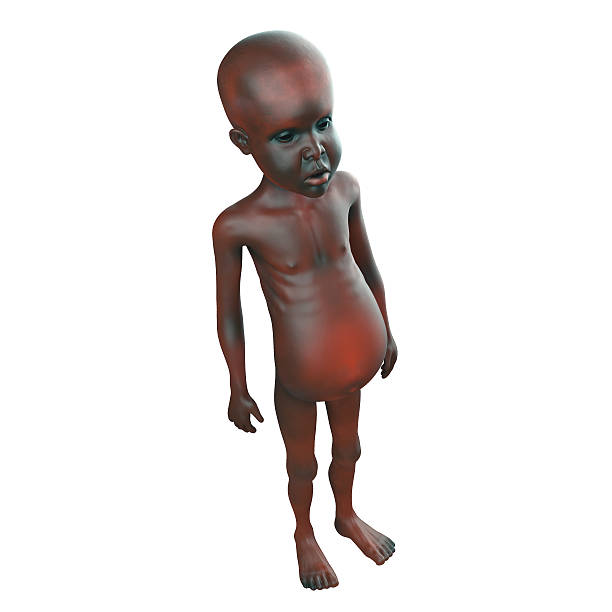Malnutrition is a condition that occurs when the body does not receive the nutrients it needs to function properly. It can result from a lack of food or a lack of specific nutrients. Malnutrition can have serious consequences for a person's physical and mental health, and it is a major public health issue around the world.

In this blog, we will explore the causes, symptoms, and treatment options for malnutrition.
Causes of Malnutrition

Malnutrition can be caused by a variety of factors, including:
-
Lack of food: This is the most common cause of malnutrition, especially in developing countries where poverty is widespread.
-
Poor diet: Even when food is available, a poor diet that is high in calories and low in nutrients can lead to malnutrition.
-
Digestive problems: Certain digestive disorders can make it difficult for the body to absorb nutrients from food, leading to malnutrition.
-
Medical conditions: Chronic diseases such as cancer, kidney disease, and HIV/AIDS can cause malnutrition due to increased nutrient requirements or decreased appetite.
-
Alcoholism: Heavy alcohol consumption can lead to malnutrition by interfering with the absorption and metabolism of nutrients.
Symptoms of Malnutrition
The symptoms of malnutrition can vary depending on the severity and cause of the condition. Some common symptoms of malnutrition include:
-
Weight loss: Unintentional weight loss is a common sign of malnutrition.
-
Fatigue: A lack of energy and feeling tired all the time can be a symptom of malnutrition.
-
Weakness: Malnourished individuals may experience weakness or a lack of physical strength.
-
Poor wound healing: The body needs nutrients to heal, so poor wound healing may be a sign of malnutrition.
-
Delayed growth and development: Children who are malnourished may experience delayed growth and developmental delays.
Treatment for Malnutrition
The treatment for malnutrition depends on the cause and severity of the condition. In cases of severe malnutrition, hospitalization may be necessary to provide nutritional support and monitor for complications. In less severe cases, nutritional counseling and dietary changes may be recommended. If malnutrition is caused by an underlying medical condition or digestive disorder, treatment of the underlying condition may be necessary. In some cases, nutritional supplements or fortified foods may be recommended to help meet nutrient requirements.
Preventing Malnutrition
Preventing malnutrition requires a combination of strategies, including:
-
Eating a well-balanced diet: A diet that includes a variety of nutrient-dense foods is essential for preventing malnutrition.
-
Adequate intake of calories: The body needs a certain amount of calories to function properly, so it's important to consume enough calories to meet daily energy needs.
-
Addressing digestive disorders: Treating digestive disorders can help ensure that the body can properly absorb nutrients from food.
-
Screening for malnutrition: Screening for malnutrition in high-risk individuals can help identify and address the condition before it becomes severe.
In conclusion, malnutrition is a serious condition that can have a profound impact on a person's health and well-being. It is important to seek medical attention if you suspect that you or someone you love may be experiencing symptoms of malnutrition. With proper treatment and preventive measures, malnutrition can be addressed and its consequences minimized.












